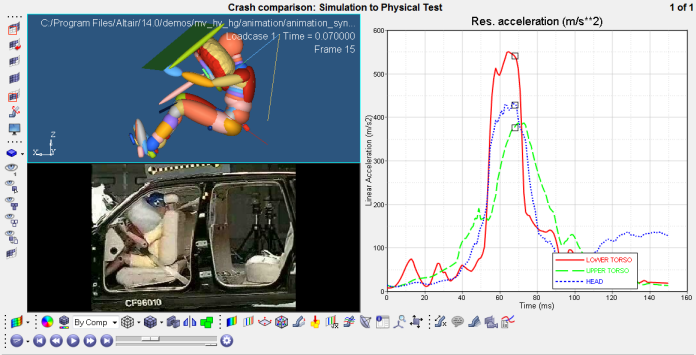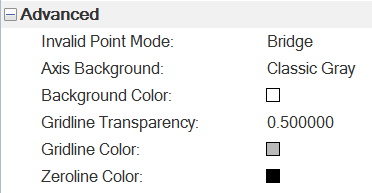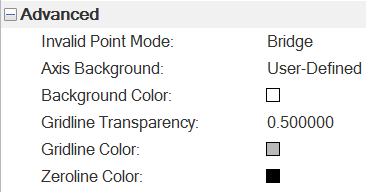Plots View
The Plots view, ![]() , displays all plot entities in a tree structure.
, displays all plot entities in a tree structure.
The tree contains plot entities grouped within their page and window. For example, a folder for each page is displayed and can be expanded to view all plots on the page. When each window folder is expanded (for example, w1:XY Plot in the image below), all entities for that window are visible (curves, datum lines, headers/footers/legend, titles, and so on). You can select multiple entities of the same type at the same time, but you cannot select multiple entities of different types.
You can select a plot window attribute under the window heading (for example, Legend or X1 in the image below) to highlight the entity in the graphical area. The properties for that entity are displayed in the Entity Editor, located in the lower portion of the plot browser.
If you select Legend, for example, the legend is highlighted and surrounded by a yellow border and the legend's properties are displayed in the Entity Editor.
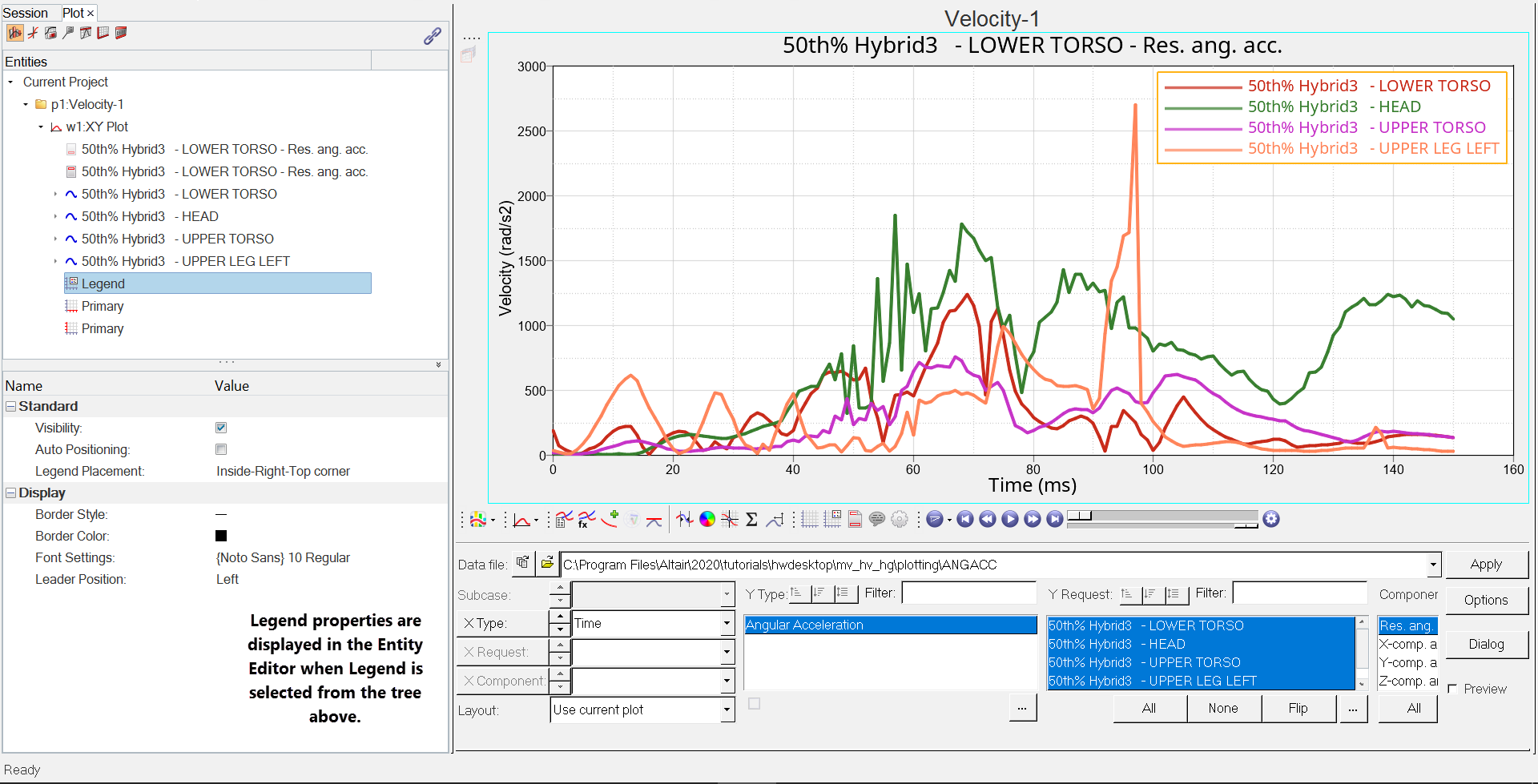
Similarly, clicking on a curve or vector displays its properties in the Entity Editor. Vectors are shown in the tree under their corresponding curves. To apply a filter to an x or y vector property, right-click on the x or y vector’s property in the Entity Editor and select Add as filter. After a value is given to that filter, all vectors with that value for that property are shown in the Plot Browser, with their corresponding curves. See Plot Browser Filters for more information.
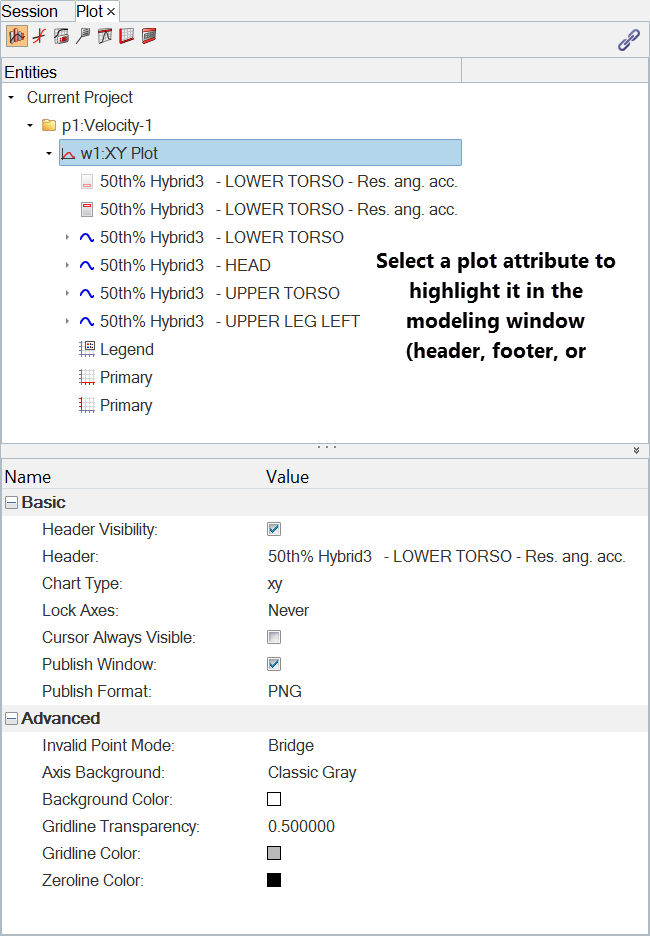
The following properties are visible and editable in the Entity Editor when Plot view is selected:
Basic
- Header Visibility
- Displays the unevaluated (Templex) expression for the plot's header.
- Header
- Check the box to display the header on the page.
- Chart Type
- Displays the current plot's chart type. Click on the icon to select a different chart type. Options include XY Plot, Bar Plot, Complex Plot and Polar Plot.
- Lock Axes
- Choose from Never, At Import, or Always.
- Cursor Always Visible
- Select this option to always display the plot’s cursor, even if you click on another window on the page. This is helpful when you are synchronizing animation, plot, and video windows. The cursor(s) allows you to see the current animation time step on the plot, even when the plot window is not active.
- Publish Window
- Select Publish Window to publish the current window contents.
- Publish Format
- If Publish Window is selected, select a format type from the drop-down menu.
Advanced
- Invalid Point Mode
- If a CSV file contains blank spaces, select Bridge or Gap.
- Axis Background
- Axis Background set to Classic Gray displays the gray color in the axes background. This is the default.
- Background Color
- Select a color from the palette to change the plot background's color.
- Gridline Transparency
- Numeric value that increases or decreases the gridline visibility. 0.50 is the default value. A lower value increases the gridlines' visibility.
- Gridline Color
- Select a color from the palette to change the gridline color.
- Zeroline Color
- Select a color from the palette to change the zeroline color.
